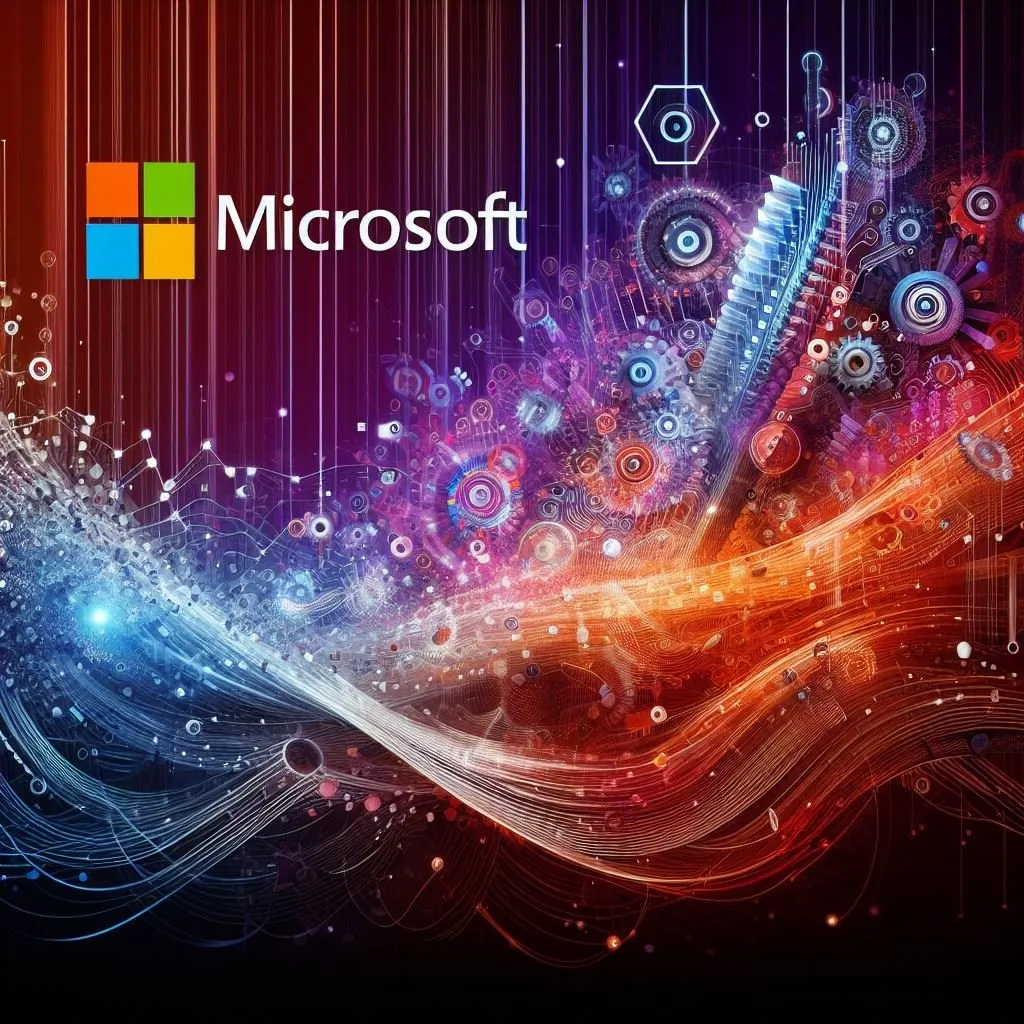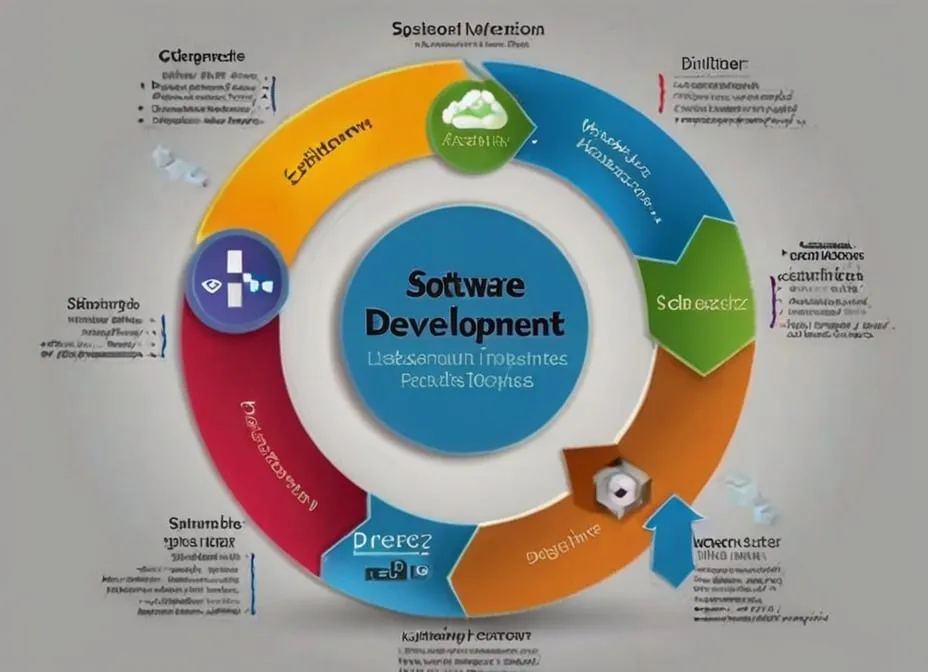Quantum Computing vs. Classical Computing: Exploring the Differences

Introduction to Quantum and Classical Computing
Welcome to the fascinating world of quantum computing, where the laws of physics take a mind-bending turn! In this article, we'll explore the intriguing realm of quantum computing and how it differs from the classical computing we've grown accustomed to. Get ready to embark on a journey that will challenge your understanding of computation and unveil the incredible potential (and limitations) of this emerging technology.
What is Quantum Computing?
Quantum computing harnesses the principles of quantum mechanics, a branch of physics that governs the behavior of matter and energy at the atomic and subatomic levels. Unlike classical computers, which process information using bits represented as 0s and 1s, quantum computers exploit the quantum-mechanical phenomena of superposition and entanglement to perform calculations.
What is Classical Computing?
Classical computing, on the other hand, is the traditional form of computation we've been using for decades. It relies on the manipulation of binary digits (bits) that can represent either 0 or 1, encoding information and performing calculations based on classical physics.
The Fundamental Difference
The fundamental difference between quantum and classical computing lies in the way they process information. Classical computers operate on bits that can exist in one of two states (0 or 1) at any given time. In contrast, quantum computers leverage quantum bits (qubits) that can exist in a superposition of both 0 and 1 simultaneously, enabling them to perform certain calculations exponentially faster than classical computers.
The Principles Behind Quantum Computing
To truly appreciate the potential of quantum computing, we need to understand the principles that govern its operation. Let's dive into the fascinating world of quantum mechanics and explore the key concepts that make quantum computing so powerful (and challenging).
Quantum Bits (Qubits)
At the heart of quantum computing lies the qubit, short for quantum bit. Unlike classical bits, which can only represent 0 or 1, qubits can exist in a superposition of both states simultaneously. This mind-bending concept is fundamental to quantum computing and enables qubits to represent and process exponentially more information than classical bits.
Superposition
Superposition is a quantum-mechanical principle that allows a particle, such as an electron, to exist in multiple states simultaneously. In the context of quantum computing, this means that a qubit can represent both 0 and 1 at the same time, rather than being limited to just one value. It's as if the qubit exists in a cloud of possibilities, and it's not until we measure it that it "collapses" into a definite state.
Entanglement
Entanglement is another fascinating quantum phenomenon that plays a crucial role in quantum computing. When two or more particles (or qubits) become entangled, their states become inextricably linked, even if they are separated by vast distances. Measuring the state of one particle instantly affects the state of the other(s), regardless of the distance between them. This spooky behavior is a key component of quantum computing and enables highly efficient parallel processing.
Quantum Parallelism
Quantum parallelism is one of the most promising aspects of quantum computing. Due to the properties of superposition and entanglement, a quantum computer can perform certain calculations on multiple potential solutions simultaneously. This massive parallelism allows quantum computers to explore a vast solution space in a fraction of the time it would take a classical computer to check each possibility sequentially.
The Potential of Quantum Computing
While the principles behind quantum computing may seem abstract and mind-boggling, the potential applications of this technology are both exciting and far-reaching. Let's explore some of the areas where quantum computing could revolutionize our understanding and capabilities.
Solving Complex Problems
Certain types of problems, such as factoring large numbers or searching large databases, become increasingly difficult for classical computers as the problem size grows. Quantum computers, with their ability to explore multiple solutions simultaneously, could potentially solve these complex problems much more efficiently, unlocking new frontiers in fields like cryptography, optimization, and machine learning.
Cryptography and Cybersecurity
Quantum computing poses both a threat and an opportunity in the realm of cryptography and cybersecurity. On one hand, powerful quantum computers could potentially break many of the encryption algorithms currently used to secure digital communications and transactions. However, on the other hand, quantum-based cryptography could provide virtually unbreakable encryption, revolutionizing secure communication and data protection.
Simulating Quantum Systems
One of the most promising applications of quantum computing is the ability to accurately simulate and model quantum systems, such as molecules, materials, and subatomic particles. This could lead to breakthroughs in fields like chemistry, materials science, and particle physics, enabling us to design new drugs, develop more efficient energy sources, and gain deeper insights into the fundamental nature of our universe.
Optimization and Machine Learning
Quantum computing could revolutionize optimization problems and machine learning algorithms. By leveraging quantum parallelism and the ability to explore vast solution spaces efficiently, quantum computers could potentially find optimal solutions to complex optimization problems faster than classical computers. This could lead to significant advancements in areas like logistics, finance, and artificial intelligence.
Limitations and Challenges of Quantum Computing
While the potential of quantum computing is undoubtedly exciting, it's important to acknowledge the significant challenges and limitations that currently exist in this field. Let's explore some of the key obstacles that researchers and engineers are working to overcome.
Noise and Error Correction
Quantum systems are inherently fragile and susceptible to external interference, or "noise," which can introduce errors in calculations. Developing robust error-correction techniques is crucial for ensuring the reliability and scalability of quantum computers. This is a significant challenge, as even the slightest disturbance can disrupt the delicate quantum states.
Scalability Issues
Building a large-scale, practical quantum computer is an immense engineering challenge. As the number of qubits increases, the complexity of managing and controlling the quantum system grows exponentially. Maintaining the required level of isolation and precision becomes increasingly difficult, limiting the scalability of quantum computers.
The Need for Extremely Low Temperatures
Most quantum computing implementations require operating at extremely low temperatures, often just a fraction of a degree above absolute zero. Maintaining these ultra-low temperatures is technically challenging and energy-intensive, adding to the complexity and cost of quantum computing systems.
The Cost Factor
Developing and manufacturing quantum computers is an expensive endeavor, often requiring specialized facilities, highly skilled personnel, and cutting-edge materials and technologies. The high costs associated with quantum computing research and development could slow down progress and limit accessibility, at least in the near term.
Current State and Future of Quantum Computing
Despite the challenges, the field of quantum computing is rapidly evolving, with major players and research organizations pushing the boundaries of what's possible. Let's take a look at the current state of quantum computing and the prospects for its future development.
Major Players and Research Efforts
Companies like Google, IBM, Microsoft, and Intel, as well as prestigious research institutions like MIT, Caltech, and the University of Chicago, are at the forefront of quantum computing research and development. These organizations are investing heavily in the pursuit of practical quantum computing applications, pushing the limits of qubit scalability, error correction, and quantum algorithm development.
Quantum Supremacy Debate
In 2019, Google claimed to have achieved "quantum supremacy" with its 54-qubit Sycamore processor, performing a specific calculation in 200 seconds that would have taken the world's most powerful classical supercomputer approximately 10,000 years. However, this claim has been subject to debate and scrutiny within the scientific community, with some arguing that the achievement was narrow and not necessarily indicative of broader quantum supremacy.
Prospects for Practical Applications
While we're still in the early stages of quantum computing development, researchers are actively exploring practical applications in fields like chemistry, materials science, finance, logistics, and machine learning. As quantum hardware and software continue to mature, we can expect to see quantum computing solutions being integrated into various industries, potentially revolutionizing how we approach complex problems.
The Race for a Universal Quantum Computer
The ultimate goal for many researchers and organizations is the development of a large-scale, universal quantum computer capable of tackling a wide range of computational problems. However, this is an immense challenge that will require breakthroughs in areas such as qubit scalability, error correction, and quantum algorithm design. The race is on to achieve this milestone, with significant implications for scientific discovery, technological advancement, and potentially even our understanding of the universe itself.
Classical Computing: Still Relevant?
With all the excitement surrounding quantum computing, it's natural to wonder about the future of classical computing. Will quantum computers render traditional computers obsolete? The answer is a resounding "no." Classical computing will remain relevant and complementary to quantum computing for the foreseeable future.
The Strengths of Classical Computing
Classical computers excel at certain tasks, such as running complex software, handling large databases, and performing intricate simulations. They are also more widely available, less expensive, and easier to maintain than quantum computers. For many applications, classical computing will continue to be the preferred solution, especially in areas where quantum computing doesn't offer a significant advantage.
Complementing Quantum Computing
Rather than viewing quantum and classical computing as competitors, it's more accurate to see them as complementary technologies. Quantum computers are expected to excel at specific tasks, such as factoring large numbers, searching databases, and simulating quantum systems, while classical computers will continue to handle the majority of general-purpose computing tasks.
Hybrid Approaches
One promising direction is the development of hybrid approaches that combine the strengths of both classical and quantum computing. In these hybrid systems, classical computers would handle tasks they excel at while offloading specific calculations or simulations to quantum coprocessors. This synergistic approach could potentially unlock new capabilities and efficiencies in various fields.
The Future of Classical Computing
While quantum computing may steal the spotlight in the coming years, classical computing will continue to evolve and remain an integral part of our technological landscape. Advancements in areas like semiconductor technology, parallel processing, and artificial intelligence will ensure that classical computers remain powerful and relevant, even as quantum computing becomes more prevalent.
FAQ Section
1. What is the main difference between quantum and classical computing?
The main difference lies in the way information is processed and represented. Classical computers use binary bits (0s and 1s) to encode information, while quantum computers leverage quantum bits (qubits) that can exist in a superposition of 0 and 1 simultaneously. This allows quantum computers to explore multiple potential solutions simultaneously, potentially offering exponential speedups for certain types of problems.
2. What are some potential applications of quantum computing?
Some potential applications of quantum computing include:
- Cryptography and cybersecurity
- Simulating quantum systems (e.g., molecules, materials, subatomic particles)
- Solving complex optimization problems
- Machine learning and artificial intelligence
- Breaking encryption algorithms (both a threat and an opportunity)
3. What are the main challenges facing quantum computing?
The main challenges include:
- Noise and error correction (maintaining precise quantum states)
- Scalability (increasing the number of qubits while maintaining control)
- Operating at extremely low temperatures (often near absolute zero)
- High costs associated with research and development
4. Will quantum computers replace classical computers?
No, quantum computers are not expected to replace classical computers entirely. Instead, they are likely to complement classical computing by excelling at specific tasks, such as factoring large numbers, searching databases, and simulating quantum systems. Classical computers will continue to handle the majority of general-purpose computing tasks.
5. How close are we to achieving a practical, large-scale quantum computer?
While significant progress has been made, we are still in the early stages of quantum computing development. Major challenges related to scalability, error correction, and algorithm development must be overcome before we can achieve a large-scale, universal quantum computer capable of tackling a wide range of computational problems. However, researchers and organizations worldwide are actively working on this goal.










